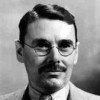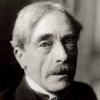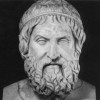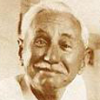Quotations about:
wisdom
Note not all quotations have been tagged, so Search may find additional quotes on this topic.
Even fools who keep silent are considered wise;
when they close their lips, they are deemed intelligent.The Bible (The Old Testament) (14th - 2nd C BC) Judeo-Christian sacred scripture [Tanakh, Hebrew Bible], incl. the Apocrypha (Deuterocanonicals)
Proverbs 17:28 [NRSV (2021 ed.)]
(Source)
See Twain.
Alternate translations:
Even a fool, when he holdeth his peace, is counted wise: and he that shutteth his lips is esteemed a man of understanding.
[KJV (1611)]
If a fool can hold his tongue, even he can pass for wise, and pass for clever if he keeps his lips tight shut.
[JB (1966)]
After all, even fools may be thought wise and intelligent if they stay quiet and keep their mouths shut.
[GNT (1976)]
If the fool holds his tongue, he may pass for wise; if he seals his lips, he may pass for intelligent.
[NJB (1985)]
Fools who keep quiet are deemed wise;
those who shut their lips are smart.
[CEB (2011)]
Even fools who keep silent are deemed wise;
Intelligent, while their mouth is shut.
[RJPS (2023 ed.)]
Appearances to the mind are of four kinds. Things either are what they appear to be; or they neither are, nor appear to be; or they are, and do not appear to be; or they are not, and yet appear to be. Rightly to aim in all these cases is the wise man’s task.
If most of us are ashamed of shabby clothes and shoddy furniture, let us be more ashamed of shabby ideas and shoddy philosophies.
Albert Einstein (1879-1955) German-American physicist
(Attributed)
Attributed to Einstein, but no definitive citation found. See here for more discussion.
The means by which we live have outdistanced the ends for which we live. Our scientific power has outrun our spiritual power. We have guided missiles and misguided men.
Martin Luther King, Jr. (1929-1968) American clergyman, civil rights leader, social activist, preacher
Strength to Love, ch. 7 “The Man Who Was a Fool,” sec. 3 (1963)
(Source)
Almost every wise saying has an opposite one, no less wise, to balance it.
George Santayana (1863-1952) Spanish-American poet and philosopher [Jorge Agustín Nicolás Ruíz de Santayana y Borrás]
The Life of Reason or The Phases of Human Progress, Vol. 5 “Reason in Science,” ch. 8 “Prerational Morality” (1905)
(Source)
Think before you speak. Read before you think. This will give you something to think about that you didn’t make up yourself — a wise move at any age, but most especially at seventeen, when you are in the greatest danger of coming to annoying conclusions.
Self-correction begins with self-knowledge.
[Principio es de corregirse el conocerse]
Baltasar Gracián y Morales (1601-1658) Spanish Jesuit priest, writer, philosopher
The Art of Worldly Wisdom [Oráculo Manual y Arte de Prudencia], § 69 (1647) [tr. Maurer (1992)]
(Source)
(Source (Spanish)). Alternate translations:
The knowledge of one's self is the beginning of amendment.
[Flesher ed. (1685)]
Self-knowledge is the beginning of self-improvement.
[tr. Jacobs (1892)]
It is a first principle that in order to improve yourself, you must first know yourself.
[tr. Fischer (1937)]
When one sees the number and variety of institutions which exist for the purposes of education, and the vast throng of scholars and masters, one might fancy the human race to be very much concerned about truth and wisdom. But here, too, appearances are deceptive. The masters teach in order to gain money, and strive, not after wisdom, but the outward show and reputation of it; and the scholars learn, not for the sake of knowledge and insight, but to be able to chatter and give themselves airs.
[Wenn man die Vielen und Mannigfaltigen Anstalten zum Lehren und Lernen un das so große Gedränge von Schülern und Meistern sieht, könnte man glauben, daß es dem Menschengeschlechte gar sehr um Einsicht und Wahrheit zu thun sei. Aber auch hier trügt der Schein. Jene lehren, um Geld zu verdienen und streben nicht nach Weisheit, sondern nach dem Schein und Kredit derselben: und Diese lernen nicht, um Kenntniß und Einsicht zu erlangen; sondern um schwätzen zu können nd sich ein Ansehn zu geben Alle dreißig Jahre nämlich tritt so ein sondern um schwätzen zu können und sich ein Ansehn zu geben.]
Arthur Schopenhauer (1788-1860) German philosopher
Parerga and Paralipomena, Vol. 2, ch. 21 “On Learning and the Learned [Über Gelehrsamkeit und Gelehrte],” § 244 (1851) [tr. Saunders (1890)]
(Source)
(Source (German)). Alternate translation:
When we see the different institutions for teaching and learning and the vast throng of pupil and masters, we might imagine that the human race was very much bent on insight and truth; but here appearances are deceptive. The masters teach in order to earn money and aspire not to wisdom, but to the semblance and reputation thereof; the pupils learn not to acquire knowledge and insight, but to be able to talk and chat and to give themselves airs.
[tr. Payne (1974)]
We need supermen to rule us — the job is so vast and the need for wise judgment is so urgent. But, alas, there are no supermen. Those who rule us are like you and me. It is a frightening situation.
Brooks Atkinson (1894-1984) American drama critic and journalist
Once Around the Sun, “January 27” (1951)
(Source)
Every man who has seen the world knows that nothing is so useless as a general maxim. If it be very moral and very true, it may serve for copy to a charity-boy. If, like those of Rochefoucauld, it be sparkling and whimsical, it may make an excellent motto for an essay. Few, indeed, of the many wise apophthegms which have been uttered from the time of the Seven Sages of Greece to that of Poor Richard, have prevented a single foolish action.
Thomas Babington Macaulay (1800-1859) English writer and politician
“Machiavelli,” Edinburgh Review (Mar 1827)
(Source)
Review of Œvres complètes de Machiavel, J. V. Perier ed. (1825)
Do not let the wise boast in their wisdom; do not let the mighty boast in their might; do not let the wealthy boast in their wealth; but let those who boast boast in this, that they understand and know me, that I am the Lord; I act with steadfast love, justice, and righteousness in the earth, for in these things I delight, says the Lord.
The Bible (The Old Testament) (14th - 2nd C BC) Judeo-Christian sacred scripture [Tanakh, Hebrew Bible], incl. the Apocrypha (Deuterocanonicals)
Jeremiah 9:23-24 [NRSV (1989 ed.)]
(Source)
Alternate translations:
Let not the wise man glory in his wisdom, neither let the mighty man glory in his might, let not the rich man glory in his riches: But let him that glorieth glory in this, that he understandeth and knoweth me, that I am the Lord which exercise lovingkindness, judgment, and righteousness, in the earth: for in these things I delight, saith the Lord.
[KJV (1611)]
Let the sage boast no more of his wisdom, nor the valiant of his valour, nor the rich man of his riches! But if anyone wants to boast, let him boast of this: of understanding and knowing me. For I am Yahweh, I rule with kindness, justice and integrity on earth; yes, these are what please me -- it is Yahweh who speaks.
[JB (1966), 9:22-23]
The wise should not boast of their wisdom,
nor the strong of their strength,
nor the rich of their wealth.
If any want to boast,
they should boast that they know and understand me,
because my love is constant,
and I do what is just and right.
These are the things that please me.
I, the Lord, have spoken.
[GNT (1976)]
"Let the sage not boast of wisdom, nor the valiant of valour, nor the wealthy of riches! But let anyone who wants to boast, boast of this: of understanding and knowing me. For I am Yahweh, who acts with faithful love, justice, and uprightness on earth; yes, these are what please me," Yahweh declares.
[NJB (1985), 9:22-23]
Let not the wise glory in their wisdom;
Let not the strong glory in their strength;
Let not the rich glory in their riches.
But only in this should one glory:
In being earnestly devoted to Me.
For I GOD act with kindness,
Justice, and equity in the world;
For in these I delight
-- declares GOD.
[RJPS (2023 ed.), 9:22-23]
Kindness consists in part, perhaps, in esteeming and loving people more than they deserve; but then there is a measure of prudence in believing that people are not always equal to what they are taken for.
[Une partie de la bonté consiste peut-être à estimer et à aimer les gens plus qu’ils ne le méritent; mais alors une partie de la prudence est de croire que les gens ne valent pas toujours ce qu’on les prise.]Joseph Joubert (1754-1824) French moralist, philosopher, essayist, poet
Pensées [Thoughts], ch. 5 “Des Passions et des Affections de l’Âme [On the Soul],” ¶ 66 (1850 ed.) [tr. Attwell (1896), ¶ 71]
(Source)
(Source (French)). Alternate translation:
A part of goodness consists, perhaps, in esteeming and loving people more than they deserve; but then a part of prudence is to believe that people are not always worth what we rate them at.
[tr. Calvert (1866), ch. 5]
Commonly truncated and paraphrased as:
A part of kindness consists in loving people more than they deserve.
[E.g. (1935)]
(Sometimes the "A part of" is left off as well.)
The best thing to give to your enemy is forgiveness; to an opponent, tolerance; to a friend, your heart; to your child, a good example; to a father, deference; to your mother, conduct that will make her proud of you; to yourself, respect; to all men, charity.
Clara Lucas Balfour (1808-1878) English novelist, lecturer, temperance campaigner
Sunbeams for All Seasons: Counsels, Cautions, and Precepts (1861 ed.)
He that gives good advice, builds with one hand; he that gives good counsel and example, builds with both; but he that gives good admonition and bad example, builds with one hand and pulls down with the other.
It is a bit embarrassing to have been concerned with the human problem all one’s life and find at the end that one has no more to offer by way of advice than “Try to be a little kinder.”
Aldous Huxley (1894-1963) English novelist, essayist and critic
(Attributed)
Widely quoted but without a good citation. Variant: "It is a little embarrassing that, after 45 years of research and study, the best advice I can give to people is to be a little kinder to each other." This version was quoted by his wife, Laura Huxley, in the biography This Timeless Moment (1968).
To the question whether I am a pessimist or an optimist, I answer that my knowledge is pessimistic, but my willing and hoping are optimistic.
Albert Schweitzer (1875-1965) Alsatian philosopher, physician, philanthropist, polymath
Out of My Life and Thought, An Autobiography, Epilogue (1933) [tr. Campion]
See also Gramsci.
There is more in you of good than you know, child of the kindly West. Some courage and some wisdom, blended in measure. If more of us valued food and cheer and song above hoarded gold, it would be a merrier world.
J.R.R. Tolkien (1892-1973) English writer, fabulist, philologist, academic [John Ronald Reuel Tolkien]
The Hobbit, ch. 18 “The Return Journey” [Thorin] (1937)
(Source)
I honestly beleave it iz better tew know nothing than two know what ain’t so.
[I honestly believe it is better to know nothing than to know what ain’t so.]
Josh Billings (1818-1885) American humorist, aphorist [pseud. of Henry Wheeler Shaw]
Everybody’s Friend, Or; Josh Billing’s Encyclopedia and Proverbial Philosophy of Wit and Humor, “Sollum Thoughts” (1874)
(Source)
This was Billings signature aphorism, and he used variations on multiple occasions. Variants and evolutions have also been misattributed to Will Rogers, Mark Twain, and Artemus Ward, sometimes from their own paraphrases of Billings. Some variations (usually without specific citations) include:
In a similar vein, Billings wrote, "Wisdum don't konsist in knowing more that iz new, but in knowing less that iz false. [Wisdom doesn't consist in knowing more that is new, but in knowing less than is false.]" [Source]
- "The trouble with people is not that they don't know but that they know so much that ain't so."
- "It ain't what you don't know that gets you into trouble. It's what you know for sure that just ain't so."
- "You’d better not know so much, than know so many things that ain’t so."
More discussion about this quotation:
- It Ain’t What You Don’t Know That Gets You Into Trouble. It’s What You Know for Sure That Just Ain’t So – Quote Investigator
- Ralph Keyes, The Quote Verifier (2006)
- Ralph Keyes, Nice Guys Finish Seventh (1992)
- James Billington, Respectfully Yours (1993)
- Daniel Levitin, A Field Guide to Lies, Deluxe Ed. (2016)
For such is the nature of men that howsoever they may acknowledge many others to be more witty, or more eloquent or more learned, yet they will hardly believe there be many so wise as themselves; for they see their own wit at hand, and other men’s at a distance.
Finally, stick to the advice your own heart gives you, no one can be truer to you than that; since a man’s soul often forewarns him better than seven watchmen perched on a watchtower.
The Bible (The Old Testament) (14th - 2nd C BC) Judeo-Christian sacred scripture [Tanakh, Hebrew Bible], incl. the Apocrypha (Deuterocanonicals)
Sirach (Ecclesiasticus) 37:13-14 [JB (1966)]
(Source)
Alternate translations:
And let the counsel of thine own heart stand: for there is no man more faithful unto thee than it. For a man's mind is sometime wont to tell him more than seven watchmen, that sit above in an high tower.
[KJV (1611)]
And establish within thyself a heart of good counsel: for there is no other thing of more worth to thee than it. The soul of a holy man discovereth sometimes true things, more than seven watchmen that sit in a high piece to watch.
[DRA (1899); 37:17-18]
And trust your own judgment; no one's advice is more reliable. Sometimes your own intuition can tell you more than seven watchmen on a high tower.
[GNT (1976)]
And heed the counsel of your own heart, for no one is more faithful to you than it is. For our own mind sometimes keeps us better informed than seven sentinels sitting high on a watchtower.
[NRSV (1989 ed.)]
And if I have prophetic powers and understand all mysteries and all knowledge and if I have all faith so as to remove mountains but do not have love, I am nothing.
The Bible (The New Testament) (AD 1st - 2nd C) Christian sacred scripture
1 Corinthians 13:2 [NRSV (1989)]
Alternate translations:
And though I have the gift of prophecy, and understand all mysteries, and all knowledge; and though I have all faith, so that I could remove mountains, and have not charity, I am nothing.
[KJV (1611)]
If I have the gift of prophecy, understanding all the mysteries there are, and knowing everything, and if I have faith in all its fulness, to move mountains, but without love, then I am nothing at all.
[Jerusalem (1966)]
I may have the gift of inspired preaching; I may have all knowledge and understand all secrets; I may have all the faith needed to move mountains—but if I have no love, I am nothing.
[GNT (1976)]
When I was a boy of fourteen, my father was so ignorant I could hardly stand to have the old man around. But when I got to be twenty-one, I was astonished at how much the old man had learned in seven years.
I know no safe depository of the ultimate powers of the society, but the people themselves: and if we think them not enlightened enough to exercise their controul with a wholsome discretion, the remedy is, not to take it from them, but to inform their discretion by education. this is the true corrective of abuses of constitutional power.
Thomas Jefferson (1743-1826) American political philosopher, polymath, statesman, US President (1801-09)
Letter to William Charles Jarvis (28 Sep 1820)
(Source)
But, perhaps, the excellence of aphorisms consists not so much in the expression of some rare and abstruse sentiment, as in the comprehension of some obvious and useful truths in a few words. We frequently fall into error and folly, not because the true principles of actions are not not known, but because, for a time, they are not remembered; and he may, therefore, be justly numbered among the benefactors of mankind, who contracts the great rules of life into short sentences, that may be easily impressed on the memory, and taught by frequent recollection to recur habitually to the mind.
Samuel Johnson (1709-1784) English writer, lexicographer, critic
The Rambler, #175 (19 Nov 1751)
(Source)
Although my mother didn’t know anything about science, she had a great influence on me as well. In particular, she had a wonderful sense of humor, and I learned from her that the highest forms of understanding we can achieve are laughter and human compassion.
Richard Feynman (1918-1988) American physicist
What Do You Care What Other People Think?, “The Making of a Scientist” (1988)
(Source)
Zeus, who guided mortals to be wise,
has established his fixed law —
wisdom comes through suffering.
Trouble, with its memories of pain,
drips in our hearts as we try to sleep,
so men against their will
learn to practice moderation.
Favours come to us from gods
seated on their solemn thrones —
such grace is harsh and violent.τὸν φρονεῖν βροτοὺς ὁδώ-
σαντα, τὸν [πάθει μάθος]
θέντα κυρίως ἔχειν.
στάζει δ’ ἀνθ’ ὕπνου πρὸ καρδίας
μνησιπήμων πόνος· καὶ παρ’ ἄ-
κοντας ἦλθε σωφρονεῖν.
δαιμόνων δέ που χάρις βίαιος
σέλμα σεμνὸν ἡμένων.Aeschylus (525-456 BC) Greek dramatist (Æschylus)
Agamemnon, ll. 175-183 [tr. Johnston (2007)]
(Source)
Alt. trans.:The first Hamilton alternate was used, slightly modified, by Robert Kennedy in his speech on the assassination of Martin Luther King, Jr. (4 Apr 1968). Kennedy's family used it as an epitaph on his grave Arlington National Cemetery: "Even in our sleep, pain which cannot forget, falls drop by drop upon the heart, until in our own despair, against our will, comes wisdom, through the awful grace of God."
- "It is through suffering that learning comes." [In Arnold Toynbee, "Christianity and Civilization" (1947), Civilization on Trial (1948)]
- "God, whose law it is that he who learns must suffer. And even in our sleep pain that cannot forget, falls drop by drop upon the heart, and in our own despite, against our will, comes wisdom to us by the awful grace of God." [tr. Hamilton (1930)]
- "Guide of mortal man to wisdom, he who has ordained a law, knowledge won through suffering. Drop, drop -- in our sleep, upon the heart sorrow falls, memory’s pain, and to us, though against our very will, even in our own despite, comes wisdom by the awful grace of God." [tr. Hamilton (1937)]
See here for more discussion.
The first of the four cardinal virtues of the Roman Catholic Church is “prudentia,” which basically means damn good thinking. Christ came to take away our sins, not our minds.
William Sloane Coffin, Jr. (1924-2006) American minister, social activist
Credo, “Faith, Hope, Love” (2004)
(Source)
Books won’t stay banned. They won’t burn. Ideas won’t go to jail. In the long run of history, the censor and the inquisitor have always lost. The only sure weapon against bad ideas is better ideas.
Whitney Griswold (1906–1963) American historian, educator [Alfred Whitney Griswold]
“A Little Learning,” speech, Phillips Academy, Andover (1952, Spring)
(Source)
Already I had learned from thee that because a thing is eloquently expressed it should not be taken to be as necessarily true; nor because it is uttered with stammering lips should it be supposed false. Nor, again, is it necessarily true because rudely uttered, nor untrue because the language is brilliant. Wisdom and folly both are like meats that are wholesome and unwholesome, and courtly or simple words are like town-made or rustic vessels — both kinds of food may be served in either kind of dish.
[Iam ergo abs te didiceram nec eo debere videri aliquid verum dici, quia eloquenter dicitur, nec eo falsum, quia incomposite sonant signa labiorum; rursus nec ideo verum, quia impolite enuntiatur, nec ideo falsum, quia splendidus sermo est, sed perinde esse sapientiam et stultitiam sicut sunt cibi utiles et inutiles, verbis autem ornatis et inornatis sicut vasis urbanis et rusticanis utrosque cibos posse ministrari.]
Augustine of Hippo (354-430) Christian church father, philosopher, saint [b. Aurelius Augustinus]
Confessions, Book 5, ch. 6 / ¶ 10 (5.6.10) (c. AD 398) [tr. Outler (1955)]
(Source)
(Source (Latin)). Alternate translations:
Of Thyself therefore had I now learned, that neither ought any thing to seem to be spoken truly, because eloquently; nor therefore falsely, because the utterance of the lips is inharmonious; nor, again, therefore true, because rudely delivered; nor therefore false, because the language is rich; but that wisdom and folly are as wholesome and unwholesome food; and adorned or unadorned phrases as courtly or country vessels; either kind of meats may be served up in either kind of dishes.
[tr. Pusey (1838)]
Of Thyself, therefore, had I now learned that neither ought anything to seem to be spoken truly, because eloquently; nor therefore falsely, because the utterance of the lips is inharmonious; nor, again, therefore true, because rudely delivered; nor therefore false, because the language is rich; but that wisdom and folly are as wholesome and unwholesome food; and adorned or unadorned phrases, as courtly or country vessels: either kind of meats may be served up in either kind of dishes.
[ed. Shedd (1860)]
From Thee, therefore, I had now learned, that because a thing is eloquently expressed, it should not of necessity seem to be true; nor, because uttered with stammering lips, should it be false nor, again, perforce true, because unskillfully delivered; nor consequently untrue, because the language is fine; but that wisdom and folly are as food both wholesome and unwholesome, and courtly or simple words as town-made or rustic vessels, -- and both kinds of food may be served in either kind of dish.
[tr. Pilkington (1876)]
I had learned, then, from Thee, that neither ought a thing to be regarded as true because it is eloquently uttered, nor on the other hand false because awkwardly expressed; neither is it true because the diction is ungraceful, nor false because clothed in glowing language; but that truth and folly are like wholesome and hurtful food, and language ornate and bald like fine and plain dishes, and either kind of meat may be served in either kind of dish.
[tr. Hutchings (1890)]
Already I had learned from Thee, that nothing ought to seem true because it is well expressed, nor false because the word-symbols are inelegant; yet again, that nothing is true because rudely delivered, nor false because the diction is brilliant; but that wisdom and folly are like meats that are wholesome or unwholesome, and that either kind of meat can be served up in silver or in delf, that is to say, in courtly or in homely phrase.
[tr. Bigg (1897), 5.6.2]
From You then I learned that a thing was not bound to be true because uttered eloquently, nor false because the utterance of the lips is ill-arranged; but that on the other hand a thing is not necessarily true because badly uttered, nor false because spoken magnificently. For it is with wisdom and folly as with wholesome and unwholesome food: just as either kind of food can be served equally well in rich dishes or simple, so plain or beautiful language may clothe either wisdom or folly indifferently.
[tr. Sheed (1943)]
Already, therefore, I had learned from you that nothing should be held true merely be-cause it is eloquently expressed, nor false because its signs sound harsh upon the lips. Again, I learned that a thing is not true because rudely uttered, nor is it false because its utterance is splendid. I learned that wisdom is like wholesome food and folly like unwholesome food: they can be set forth in language ornate or plain, just as both kinds of food can be served on rich dishes or on peasant ware.
[tr. Ryan (1960)]
But in your wonderful, secret way, my God, you had already taught me that a statement is not necessarily true because it is wrapped in fine language or false because it is awkwardly expressed. I believe that it was you who taught me this, because it is the truth and there is no other teacher of the truth besides yourself, no matter how or where it comes to light. You had already taught me this lesson and the converse truth, that an assertion is not necessarily true because it is badly expressed or false because it is finely spoken. I had learnt that wisdom and folly are like different kinds of food. Some are wholesome and others are not, but both can be served equally well on the finest china dish or the meanest earthenware. In just the same way, - wisdom and folly can be clothed alike in plain words or the finest flowers of speech.
[tr. Pine-Coffin (1961)]
I had now learned this from you: that a thing is not necessarily true for being expressed eloquently, nor necessarily false if the sounds made by the lips are imperfectly pronounced; nor, on the other hand, is a thing true simply because it is expressed in a rough and ready way, nor false because it is uttered in a fine style. For with wisdom and folly the same thing holds good as with wholesome and unwholesome food. You can have silver or earthenware dishes on the table, just as you can have a decorated or undecorated use of language; either kind of food can be served in either kind of dish.
[tr. Warner (1963)]
I believe that because you taught me and I had already learned from you that nothing should be deemed truly spoken because it is eloquently spoken, nor false because the indications of the lips are ill-arranged. Conversely, uncouth expression does not make something true, nor polished delivery make truth false. As with wholesome and unwholesome food, so it is with wisdom and folly, and as with adorned and unadorned language, so good food and bad can be served up in elegant or rustic dishes.
[tr. Blaiklock (1983)]
Democracy substitutes election by the incompetent many for appointment by the corrupt few.
George Bernard Shaw (1856-1950) British playwright and critic
Man and Superman, “Maxims for Revolutionists,” “Democracy” (1903)
(Source)
It takes a clever man to hide his cleverness.
[C’est une grande habileté que de savoir cacher son habileté.]
François VI, duc de La Rochefoucauld (1613-1680) French epigrammatist, memoirist, noble
Réflexions ou sentences et maximes morales [Reflections; or Sentences and Moral Maxims], ¶245 (1678) [tr. Heard (1917), ¶253]
(Source)
In the 1665 edition, this read: Le plus grand art d’un habile homme est celui de savoir cacher son habileté.
(Source (French)). Alternate translations:
It is a Great Act of Wisdom to be able to Conceal one's being Wise.
[tr. Stanhope (1694), ¶246]
It requires no small degree of ability to know when to conceal it.
[pub. Donaldson (1783), "Ability," ¶4]
It is a great ability to be able to conceal one's ability.
[ed. Gowens (1851), ¶257]
There is great ability in knowing how to conceal one's ability.
[tr. Bund/Friswell (1871), ¶245]
It is the height of art to conceal art.
[tr. Stevens (1939), ¶245]
A very clever man will know how to hide his cleverness.
[tr. FitzGibbon (1957), ¶245]
It is exceedingly clever to know how to hide your cleverness.
[tr. Kronenberger (1959), ¶245]
To conceal ingenuity is ingenuity indeed.
[tr. Tancock (1959), ¶245]
It is great cleverness to know how to hide our cleverness.
[tr. Whichello (2016), ¶245]
Don’t dismiss a good idea simply because you don’t like the source.
H. Jackson "Jack" Brown, Jr. (b. 1940) American writer
Life’s Little Instruction Book, Vol. 2, #691 (1994)
(Source)
HAL: Wisdom cries out in the streets, and no man regards it.
William Shakespeare (1564-1616) English dramatist and poet
Henry IV, Part 1, Act 1, sc. 2, l. 94ff (1.2.94) (1597)
(Source)
I would give the broad sweep of the First Amendment full support. I have the same confidence in the ability of our people to reject noxious literature as I have in their capacity to sort out the true from the false in theology, economics, or any other field.
William O. Douglas (1898-1980) US Supreme Court justice (1939-75)
Roth v. United States, 354 U.S. 476, 514, dissenting opinion (1957)
(Source)
TOUCHSTONE: I do now remember a saying, “The fool doth think he is wise, but the wise man knows himself to be a fool.”
William Shakespeare (1564-1616) English dramatist and poet
As You Like It, Act 5, sc. 1, l. 30ff (5.1.30-32) (1599)
(Source)
He who knows the Truth is not equal to him who loves it, and he who loves it is not equal to him who delights in it.
[知之者、不如好之者、好之者、不如樂之者]
Confucius (c. 551- c. 479 BC) Chinese philosopher, sage, politician [孔夫子 (Kǒng Fūzǐ, K'ung Fu-tzu, K'ung Fu Tse), 孔子 (Kǒngzǐ, Chungni), 孔丘 (Kǒng Qiū, K'ung Ch'iu)]
The Analects [論語, 论语, Lúnyǔ], Book 6, verse 20 (6.20) (6th C. BC – 3rd C. AD) [tr. Soothill (1910), 6.18]
(Source)
Earlier translations use Legge's verse numbering, 6.18. The source material uses 之 (zhi, "it") without a clear antecedent. Soothill suggests it may refer to Truth, Virtue, or the Right. Some translations provide what they think is the reference; others leave it ambiguous or footnote it, as shown below.
(Source (Chinese)). Alternate translations:
They who know the truth are not equal to those who love it, and they who love it are not equal to those who delight in it.
[tr. Legge (1861), 6.18]
They who know it are not as those who love it, nor they who love it as those who rejoice in it.
[tr. Jennings (1895), 6.18]
Those who know it are not as those who love it; those who love it are not as those who find their joy in it.
[tr. Ku Hung-Ming (1898), 6.18]
Those who know aren't up to those who love; nor those who love, to those who delight in.
[tr. Pound (1933), 6.18]
To prefer it is better than only to know it. To delight in it is better than merely to prefer it.
[tr. Waley (1938), 6.18; "the Way"]
The man who loves truth (or learning) is better than the man who knows it, and the man who finds happiness in it is better than the man who loves it.
[tr. Lin Yutang (1938)]
Being fond of The Right Way is better than just knowing it; and taking one’s delight in it is better than just being fond of it.
[tr. Ware (1950)]
To be fond of something is better than merely to know it, and to find joy in it is better than merely to be fond of it.
[tr. Lau (1979), 6.20]
Those who understand a thing are not equal to those who are fond of it, and those who are fond of it are not equal to those who delight in it.
[tr. Dawson (1993), 6.20]
To know something is not as good as loving it; to love something is not as good as rejoicing in it.
[tr. Leys (1997), 6.20]
Those who know it are not comparable to those who love it; those who love it are not comparable to thsoe who delight in it.
[tr. Huang (1997)]
The persons who know something are not better than the persons who favor something; The persons who favor something are not better than the persons who enjoy something.
[tr. Cai/Yu (1998), 6.20, #140]
To truly love it is better than just to understand it, and to enjoy it is better than simply to love it.
[tr. Ames/Rosemont (1998), 6.20; "knowledge and learning"]
Knowing it is not as good as loving it; loving it is not as good as taking delight in it.
[tr. Brooks/Brooks (1998), 6.20; virtue]
To understand something is nothing like loving it. And to love something is nothing like delighting in it.
[tr. Hinton (1998), 6.19]
To know it is not as good as to approve it. To approve it is not as good as to find joy in it.
[tr. Watson (2007), 6.20]
To know something is not as good as to have a love for it. To have a love for something is not as good as to find joy in it.
[tr. Annping Chin (2014), 6.20; learning, cf. 6.11 and 7.19]
Learned people are inferior to those who are eager to learn. Those who are eager to learn are inferior to those who enjoy learning.
[tr. Li (2020), 6.20]
Better than the one who knows what is right is he who loves what is right.
[Common English translation]
We live in deeds, not years:
In thoughts, not breaths;
In feelings, not in figures on a dial.
We should count time by heart-throbs.
He most lives
Who thinks most, feels the noblest, acts the best.Philip James Bailey (1816-1902) English poet, lawyer
Festus, Sc. “A Country Town – Market-place – Noon” [Festus] (1839)
(Source)
Often misattributed to Aristotle.
It is only the very wisest and the very stupidest who never change.
[唯上知與下愚不移]
Confucius (c. 551- c. 479 BC) Chinese philosopher, sage, politician [孔夫子 (Kǒng Fūzǐ, K'ung Fu-tzu, K'ung Fu Tse), 孔子 (Kǒngzǐ, Chungni), 孔丘 (Kǒng Qiū, K'ung Ch'iu)]
The Analects [論語, 论语, Lúnyǔ], Book 17, verse 3 (17.3) (6th C. BC – 3rd C. AD) [tr. Soothill (1910)]
(Source)
Some scholars recommend reading 17.2-3 together (I don't get it), and some actually merge them into a single verse; that is noted below. (Source (Chinese)). Alternate translations:
There are only the wise of the highest class, and the stupid of the lowest class, who cannot be changed.
[tr. Legge (1861)]
Only the supremely wise and the most deeply ignorant do not alter.
[tr. Jennings (1895)]
It is only men of the highest understanding and men of the grossest dullness, who do not change.
[tr. Ku Hung-Ming (1898)]
There are two classes that never change: the supremely wise and the profoundly stupid.
[Source (1906)]
Only the wisest and the dullest never change.
[tr. Soothill (1910), Alternate 1]
Only the uppermost wise and the lowermost stupid do not change.
[tr. Soothill (1910), Alternate 2]
Only those of highest intelligence, and lowest simplicity do not shift.
[tr. Pound (1933)]
It is only the very wisest and the very stupidest who cannot change.
[tr. Waley (1938)]
Only the highest and the lowest characters don’t change.
[tr. Lin Yutang (1938)]
The only ones who do not change are sages and idiots.
[tr. Ware (1950), 17.2]
It is only the most intelligent and the most stupid who are not susceptible to change.
[tr. Lau (1979)]
Only the most intelligent and the most stupid do not change.
[tr. Dawson (1993), 17.2]
Only the wisest and the stupidest never change.
[tr. Leys (1997)]
Only the highest of the wise and the lowest of the stupid do not change.
[tr. Huang (1997), 17.2]
Only the super wisdom and the infer stupidness cannot be changed.
[tr. Cai/Yu (1998), #443]
Only the most wise (zhi) and the most stupid do not move.
[tr. Ames/Rosemont (1998)]
It is the highest wisdom and the lowest stupidity that do not change.
[tr. Brooks/Brooks (1998), 17.2b]
Those of the loftiest wisdom and those of the basest ignorance: they alone never change.
[tr. Hinton (1998)]
Only the highest among the wise and the lowest among the stupid never change.
[tr. Watson (2007)]
Only the most intelligent and the most stupid are not inclined to change.
[tr. Annping Chin (2014)]
Only superior wisdom and extreme stupidity cannot be changed.
[tr. Li (2020)]
Only the supremely wise and the most deeply ignorant do not alter.
[Source]
Only the supremely wise and the abysmally ignorant do not change.
To be born enlightened: that is highest. To study and so become enlightened: that is next. To feel trapped and so study: that is third. To feel trapped and never study: that is the level of the common people, the lowest level.
[孔子曰、生而知之者、上也、學而知之者、次也、 困而學之、又其次也、困而不學、民斯爲下矣。]
Confucius (c. 551- c. 479 BC) Chinese philosopher, sage, politician [孔夫子 (Kǒng Fūzǐ, K'ung Fu-tzu, K'ung Fu Tse), 孔子 (Kǒngzǐ, Chungni), 孔丘 (Kǒng Qiū, K'ung Ch'iu)]
The Analects [論語, 论语, Lúnyǔ], Book 16, verse 9 (16.9) (6th C. BC – AD 3rd C.) [tr. Hinton (1998)]
(Source)
Brooks says this was interpolated into Book 16 at the time of Book 18. (Source (Chinese)). Alternate translations:
Those who are born with the possession of knowledge are the highest class of men. Those who learn, and so, readily, get possession of knowledge, are the next. Those who are dull and stupid, and yet compass the learning, are another class next to these. As to those who are dull and stupid and yet do not learn; -- they are the lowest of the people
[tr. Legge (1861), sec. 2]
They whose knowledge comes by birth are of all men the first (in understanding); they to whom it comes by study are next; men of poor intellectual capacity, who yet study, may be added as a yet inferior class; and lowest of all are they who are poor in intellect and never learn.
[tr. Jennings (1895)]
The highest class of men are those who are born with a natural understanding. The next class are those who acquire understanding by study and application. There are others again who are born naturally dull, but who yet by strenuous efforts, try to acquire understanding: such men may be considered the next class. Those who are born naturally dull and yet will not take the trouble to acquire understanding: such men are the lowest class of the people.
[tr. Ku Hung-Ming (1898)]
Those who have innate wisdom take the biggest rank. Those who acquire it by study rank next. Those who learn despite natural limitations come next. But those who are of limited ability and yet will not learn, -- these form the lowest class of men.
[tr. Soothill (1910)]
Those who know instinctively (as at birth) are the highest; those who study and find out, come next; those who are hampered and study come next. Those who are boxed in and do not study constitute the lowest people.
[tr. Pound (1933)]
Best are those who are born wise. Next are those who become wise by learning. After come those who have to toil painfully in order acquire learning. Finally, to the lowest class of the common people belong those who toil painfully without ever managing to learn.
[tr. Waley (1938)]
Those born with an understanding of the universe belong to the highest type of humanity. Those who understand it as the result of study come second. Those who study it with great difficulty come third. Because, owing to the difficulty, they do not study, the people come last.
[tr. Ware (1950)]
Those who are born with knowledge are the highest. Next come those who attain knowledge through stud. Next again come those who turn to study after having been vexed by difficulties. The common people, in so far as they make no effort to study even after having been vexed by difficulties, are the lowest.
[tr. Lau (1979)]
Those who know things from birth come first; those who know things from study come next; those who study things although the find them difficult come next to them; and those who do not study because they find things difficult, that is to say the common people, come last.
[tr. Dawson (1993)]
Those who have innate knowledge are the highest. Next come those who acquire knowledge through learning. Next again come those who learn through the trials of life. Lowest are the common people who go through the trials of life without learning anything.
[tr. Leys (1997)]
Those who know it at birth belong to the highest category; those who know it through learning belong to the second category; those hwo learn it when baffled belong to the third category; those who do not learn even when baffled -- such people belong to the lowest category.
[tr. Huang (1997)]
It is the first class that one gets the knowledge because of one's innateness, it is the second class that one gets the knowledge because of one's studying, it is the third class that one gets studying because of one's encountering the difficulty, and it is under the class that one who does not study even if one encounters difficulties.
[tr. Cai/Yu (1998), #435]
Knowledge (zhi 知) acquired through a natural propensity for it is its highest level; knowledge acquired through study is the next highest; something learned in response to difficulties encountered is again the next highest. But those among the common people who do not learn even when vexed with difficulties -- they are at the bottom of the heap.
[tr. Ames/Rosemont (1998)]
Those who know from birth are the highest, those who know it from study are next, those who despite difficulties study it are next after that. Those who in difficulties do not study: these are the lowest.
[tr. Brooks/Brooks (1998)]
Those who are born understanding it are the best; those who come to understand it through learning are second. Those who find it difficult to understand and yet persist in their studies come next. People who find it difficult to understand but do not even try to learn are the worst of all.
[tr. Slingerland (2003)]
Those born with understanding rank highest. Those who study and gain understanding come next. Those who face difficulties and yet study—they are next. Those who face difficulties but never study—they are the lowest type of people.
[tr. Watson (2007)]
Those who are born with knowledge are at the top. Next are those who acquire knowledge through learning. Behind them are those who have difficulties [absorbing knowledge] but are still determined to learn. And at the bottom are people who have difficulties [absorbing knowledge] and do not even attempt to learn.
[tr. Chin (2014)]
This appears to be the source of the following aphorism frequently attributed to Confucius, and recorded in James Wood, ed., Dictionary of Quotations (1893):
By three methods we may learn wisdom: First, by reflection, which is noblest; Second, by imitation, which is easiest; and third by experience, which is the bitterest.
For more discussion of that Wood "translation":
He who breaks a thing to find out what it is has left the path of wisdom.
J.R.R. Tolkien (1892-1973) English writer, fabulist, philologist, academic [John Ronald Reuel Tolkien]
The Lord of the Rings, Vol. 1: The Fellowship of the Ring, Book 2, ch. 1 “The Council of Elrond” [Gandalf to Saruman] (1954)
(Source)













































